Legal marketing has changed dramatically over the past two decades. The legal profession is governed by strict ethical guidelines and established rules set by state bar associations and other regulatory bodies. With the rise of digital advertising and the growing demand for accessible legal services, lawyers and law firms are now competing in a fast-paced, highly regulated marketing environment with important legal advertising ethics to consider. From State Bar advertising rules to federal consumer protection statutes, law firms must navigate a complex landscape to avoid regulatory penalties and maintain ethical standards. As the legal landscape continues to evolve, it is crucial for law firms to stay up to date on ongoing changes to remain compliant with regulations governing legal advertising ethics.
In this environment, it is not enough to produce effective ads. Legal professionals must ensure that every component of their marketing strategy — from lead generation to ad placement — adheres to the highest ethical standards and maintains professionalism in all marketing efforts to uphold the integrity of the legal profession. The stakes are high when it comes to legal advertising ethics. Missteps can lead to disciplinary action, loss of public trust, or even disqualification from practice.
Curious to learn more? Keep reading for a detailed look into legal marketing, with an emphasis on how regulatory compliance affects advertising and lead generation. We’ll also explore how organizations like Walker Advertising build robust, scalable law firm lead generation systems while remaining compliant with all relevant rules.
Legal Advertising and Professional Conduct: Core Ethical Considerations
Legal advertising is governed by a mix of State Bar rules and federal consumer protection laws. Most jurisdictions model their lawyer advertising rules on the ABA Model Rules of Professional Conduct, especially Rule 7.1 through 7.5. The American Bar Association (ABA) sets important ethical standards and ABA rules that guide lawyer advertising, and state bars and each state bar association may have additional legal marketing restrictions. These rules prohibit false or misleading communications, misleading advertisements, false advertising, and improper solicitation practices, including the use of coercion or deception in client outreach. Law firm websites and law firm website content must also comply with these rules, including requirements for a real office location or physical office address, especially in the same city as the advertised legal services. For more specific guidance, see attorney advertising laws in California.
For example, Rule 7.1 of the ABA Model Rules states that “a lawyer shall not make a false or misleading communication about the lawyer or the lawyer’s services.” This includes misstatements of fact, exaggerated claims, misleading representations, or implications that cannot be factually substantiated. Ethics rules and other ethics rules prohibit misleading representations, misleading advertisements, and false advertising, and require that all claims be factually substantiated and supported by accurate and truthful information. Lawyers must avoid making statements that could mislead potential clients or create unjustified expectations for future clients.
The Role of Consent in Ethical Lead Generation
In today’s legal marketing world, consumer consent is a foundational requirement. Ethical marketing does not involve cold calling or unsolicited outreach. Instead, consumers must initiate contact or opt in to receive communication.
Walker incorporates this principle through a consent-based model. Consumers are informed at the time of inquiry about how their data will be used and who will receive it. This is known as one-to-one consent. It helps ensure that every lead passed to a participating attorney has explicitly agreed to be contacted.
This process aligns with federal regulations like the Telephone Consumer Protection Act (TCPA), which sets out specific rules for calls, texts, and other forms of contact. Under TCPA, consent is mandatory. Even when a potential client fills out an online form, clear and documented consent must be obtained before a law firm or marketing service reaches out to them.
How Walker Advertising Builds Compliance Into Its System
Walker Advertising is a perfect example of how legal marketing organizations can balance scale with ethical responsibility. Through its various sub-brands, such as 1-800-THE-LAW2 and Los Defensores, Walker connects consumers with licensed attorneys across a wide range of practice areas.
Our compliance framework is designed to meet both the letter and the spirit of legal advertising rules. Several principles guide this framework:
Automated Lead Distribution
Walker uses a neutral rotation model to distribute leads. Instead of directing leads based on subjective criteria, the system automatically routes incoming inquiries to the next available attorney in the network. This ensures fairness and prevents accusations of favoritism or improper referral.
Vetting and Onboarding of Attorneys
Before an attorney can join the network, Walker verifies their credentials, confirms their good standing with their State Bar, and ensures they are capable of handling the types of leads they will receive. This careful onboarding process reinforces the commitment to quality and compliance.
Documentation of Consent
Every lead received by Walker is accompanied by a record of consumer consent. Whether the inquiry came through a phone call, web form, or advertisement, the consumer is told upfront how their information will be used. That interaction is documented for future reference in case of audit or dispute.
Real-Time Monitoring and Complaint Resolution
Walker employs a dedicated compliance team that reviews operations in real time. If an issue arises, such as a consumer complaint or potential regulatory breach, the team investigates promptly. They have also established protocols for handling violations and making internal corrections.
Why Ethical Marketing Builds Long-Term Trust
Consumers want to feel safe and respected. That is especially true in legal services, where the stakes are personal and often life-changing. Ethical legal marketing is not just about avoiding regulatory risk. It is also about building trust with prospective clients.
By committing to transparency and fairness in legal advertising ethics, law firms and legal marketing networks like Walker demonstrate respect for client autonomy. When potential clients see that a law firm is not trying to manipulate or coerce them, they are more likely to engage with confidence.
Compliance is also a business strategy. Ethical marketing can boost a law firm’s reputation in the community and make it more attractive to both clients and referring attorneys. In an era where bad actors are regularly penalized or publicly exposed, operating above board can be a competitive advantage.
Advertising in Underserved Communities
Reaching underserved populations, such as Spanish-speaking households in the United States, is a key part of ethical legal marketing. But it comes with special responsibilities. Language access, cultural sensitivity, and transparency must be prioritized at every stage.
Walker Advertising has long made it a point to focus on underserved demographics. Bilingual platforms and culturally relevant campaigns ensure that these communities receive not only access to legal help, but also marketing messages they can understand and act upon. These outreach efforts are carefully designed to meet ethical standards while respecting the unique needs of these groups.
Attorneys who partner with Walker benefit from this approach. They are able to tap into an infrastructure that is already optimized for both regulatory compliance and community trust. This reduces liability risk and provides a consistent stream of qualified leads that are pre-screened and well-documented.
Avoiding Common Compliance Pitfalls
Lawyers entering the world of marketing often face challenges when trying to understand what is and is not allowed. Here are some common pitfalls that can expose firms to regulatory risk:
- Making promises of success or guaranteed results
- Failing to include disclaimers about attorney advertising
- Using third-party marketers without verifying their compliance record
- Overpromising availability or legal specialization
- Contacting potential clients without proper consent
To prevent these issues, law firms should consider conducting regular internal audits of their marketing materials and practices. Partnering with experienced marketing providers like Walker can also offer an added layer of protection.
The Value of Transparency and Audit Trails
One of the most overlooked elements of legal marketing compliance is recordkeeping. If a dispute arises or a regulatory body initiates an inquiry, being able to produce documentation that supports your claims is vital.
At Walker, consent records are stored and easily accessible. This means that in the event of a consumer complaint or TCPA inquiry, we can point directly to the moment when the consumer agreed to be contacted. Attorneys benefit from this structure, as it shields them from liability and provides peace of mind that their leads were ethically sourced.
This level of transparency is not just good practice. It’s increasingly expected. Regulators are paying more attention to advertising practices, especially in digital and multi-channel campaigns. An audit trail can make the difference between a minor clarification and a major penalty.
How Ethical Legal Marketing Protects Attorneys
Attorneys who rely on third-party marketing must take reasonable steps to ensure that their vendors follow applicable laws. The ABA Model Rules and most State Bar guidelines treat marketing vendors as extensions of the attorney. If a marketer acts unethically, the attorney may be held responsible.
Working with a marketing partner that takes compliance seriously reduces this risk. Walker’s built-in safeguards, including State Bar-reviewed lead assignment models, explicit consent protocols, and consumer-first advertising, create a protective layer around the attorneys in its network.
By aligning with these systems, attorneys avoid the guesswork and liability associated with developing marketing campaigns from scratch. They can focus on practicing law while knowing that their intake process is built on ethical, legal foundations.
Partnering with Walker Advertising
Legal professionals who want to build their practice without risking non-compliance may find that Walker offers a practical and ethical solution. Attorneys join the network by completing a vetting process, and once approved, begin receiving leads that have already been qualified and cleared for outreach.
The rotational distribution system ensures that all participating attorneys are treated fairly. There is no favoritism, no opaque algorithm, and no pressure to underbid or compete aggressively for leads. The system is designed for sustainability and trust.
Walker provides a complete legal marketing infrastructure. From culturally tailored advertising to ongoing compliance monitoring, attorneys are equipped with the tools they need to market effectively and responsibly.
Contact Walker Advertising for Help Growing Your Firm’s Client Base
Whether you’re a solo lawyer, or a small firm lawyer — or are part of a larger firm with plans for further expansion — it’s important to grow your client base in order to hit your revenue and client growth goals. Here at Walker Advertising, we can help. We operate a number of popular attorney networks (including our Los Defensores and 1-800-THE-LAW2 brands) through which firms are able to access leads for various legal claims.
The leads we acquire through our various online marketing efforts — from social media marketing to targeted web ads — have been pre-qualified by our team so that you aren’t hassled by a flood of leads that are simply not relevant or actionable for your purposes. By accessing these quality leads, you’ll be well-equipped to select the best ones to grow your firm business.
Best of all, you won’t have to spend your valuable time and effort on building out your online marketing efforts. Don’t worry about SEO optimization, trend analysis, or any other complex marketing issues. Instead, use us to access pre-qualified inbound leads, and focus your limited internal resources on providing quality representation to your existing (and new) client base.
Contact Walker Advertising today to connect to a member of our team who can explain how our legal networks can help your firm business thrive in this ever-changing digital marketing landscape.
We look forward to assisting you.






